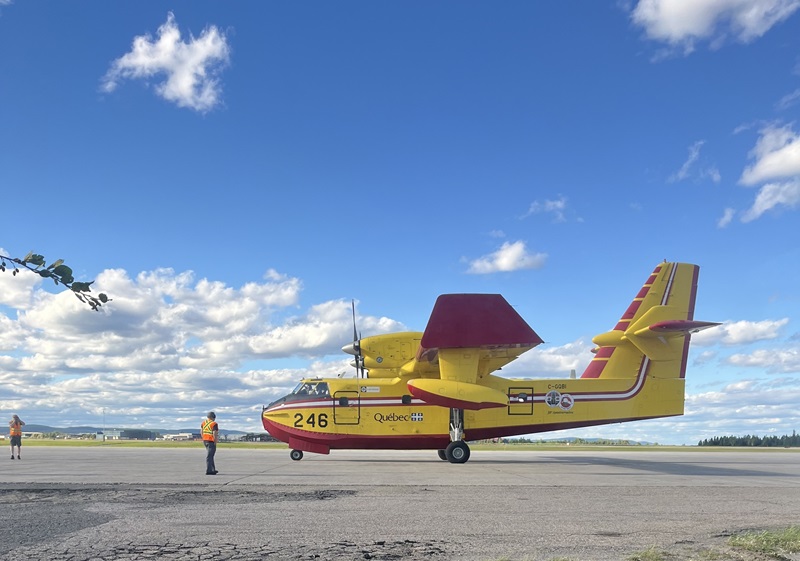Wildfire in Labrador jumps Churchill River, hydro generating station evacuated

CHURCHILL FALLS, Nfld. – The wildfire in Labrador threatening the town of Churchill Falls jumped the Churchill River on Tuesday, prompting the evacuation of the nearby hydroelectric generating station.
The river had acted as a natural fire break since the wildfire’s rapid spread on June 19 led officials to order the evacuation of most of the company town’s residents and workers.
But a skeleton crew was kept on at the massive station, which supplies electricity to Labrador and Quebec.
“From Day 1, we hoped and prayed the fire would stay on the correct side of the river and that the river would act as a natural fire barrier,” Newfoundland and Labrador Premier Andrew Furey told a news conference in St. John’s. “I think it’s premature to say how the fire will behave in a new scenario.” The fire broke out on June 13.
Newfoundland and Labrador Hydro spokeswoman Jill Pitcher confirmed that everyone at the plant — estimated at 100 employees, contractors and fire officials — was ordered to leave Tuesday.
“So there’s a bit of a phased approach … but everyone will be evacuated in a short time,” said Pitcher. “Most should be out within the hour.”
Jennifer Williams, president of the Crown corporation, told the news conference that the plan is to operate the station remotely from Happy Valley-Goose Bay, a three-hour drive to the east.
She said the massive plant, which started producing commercial power in 1971, wasn’t designed to be operated remotely.
“But our teams were able to implement limited monitoring and some remote operation in the last number of days …. I want to be really clear that it’s not the same as having a control centre …. It is very limited operation,” Williams said.
She said the power being produced by the generating station has been reduced as a safety measure, but the lower output was not having an impact on customers.
Caroline Des Rosiers, a spokesperson for Hydro-Québec, said about 15 per cent of Quebec’s electricity comes from the 5,428-megawatt Churchill Falls plant. But she said the provincial grid wouldn’t suffer much if the fire affects the dam because peak demand in the summer is about half what it is in winter.
Des Rosiers said the Quebec utility would be able to compensate with other power sources if Churchill Falls goes off-line. While forest fires can damage transmission lines and cause outages, such problems can usually be resolved remotely, she said.
“The risks are minimal,” Des Rosiers said. “We’re not worried at the present time.”
— By Michael MacDonald in Halifax with files from Cassidy McMackon in Halifax and Maura Forrest in Montreal
Feature image: A Quebec water bomber, shown here in this handout photo from Thursday, June 20, 2024, sits at the Happy Valley-Goose Bay airport, ready to help battle wildfires in central Labrador. THE CANADIAN PRESS/HO-Hunter Wilson *MANDATORY CREDIT*







